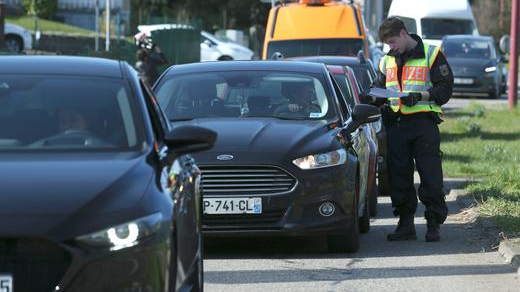The German economy contracted by 2.2 percent in the first quarter, its steepest three-month slump since the 2009 financial crisis as shops and factories were shut in March to contain the spread of the coronavirus, preliminary data showed on Friday.
Year on year, gross domestic product in Europe's largest economy fell by 2.3 percent from January to March after a 0.4 percent expansion in the previous three months, seasonally adjusted figures from the Federal Statistics Office showed.
Still, Germany appears to be faring better than neighboring France and Italy, whose economies contracted by 5.8 percent and 4.7 percent respectively in the first quarter.

This is partly due to a decision by Germany's 16 states to allow factories and construction sites to stay open and an unprecedented rescue package by Chancellor Angela Merkel's government, including state aid that allows employers to switch employees to shorter working hours to avoid mass layoffs.
Output data for the fourth quarter was revised to a contraction of 0.1 percent from a previously reported stagnation, which meant Germany was technically in a recession after two successive quarterly output slumps, the data showed.
"Things will get worse before they get better," Carsten Brzeski of ING said. "To be more precise, incoming data will be worse, even though the worst might already be behind us."

A German police officer checks a car at the border with France due to the spreading of the coronavirus disease (COVID-19) in Saarbruecken, Germany, March 16, 2020. /Reuters
A German police officer checks a car at the border with France due to the spreading of the coronavirus disease (COVID-19) in Saarbruecken, Germany, March 16, 2020. /Reuters
He added: "If today's data are the result of two weeks of lockdown, three more weeks of lockdown and a very gradual lifting of some measures do not bode well for the second quarter.”
Germany's economy ministry also said the economic downturn is expected to accelerate in the current quarter.
As of April, forward-looking indicators did not show signs of hope although a turnaround seems reachable in May, the ministry said in its monthly report.
(With input from Reuters)